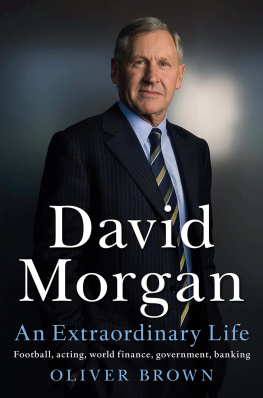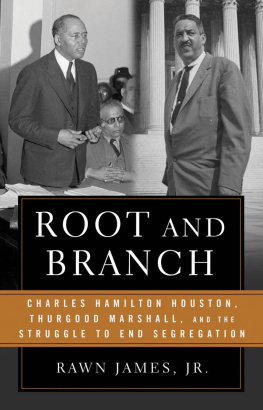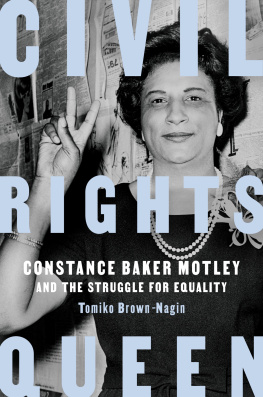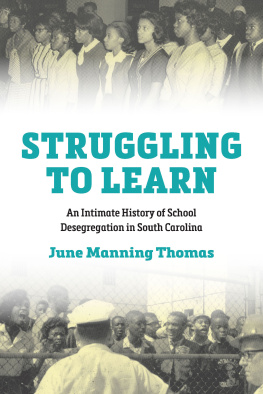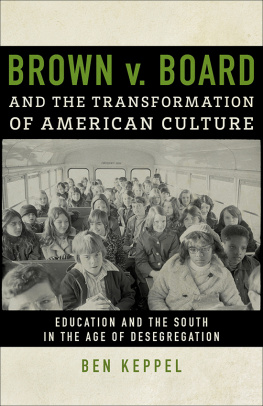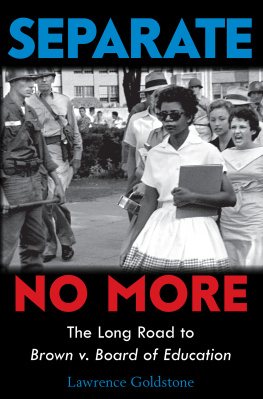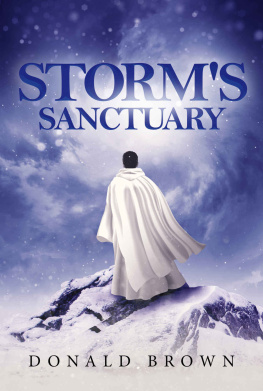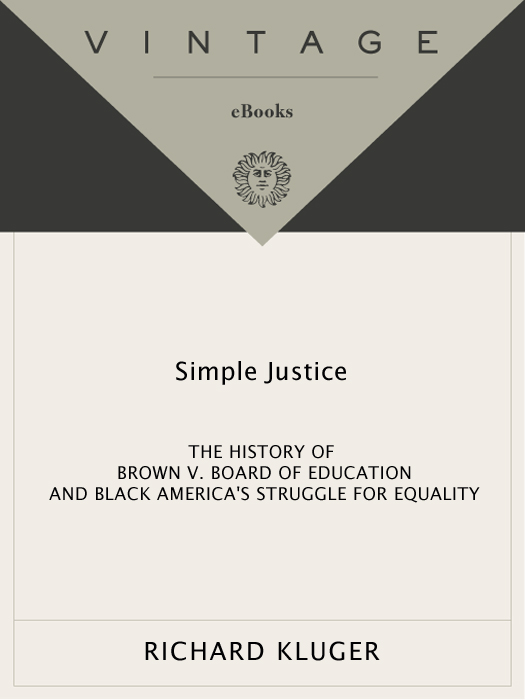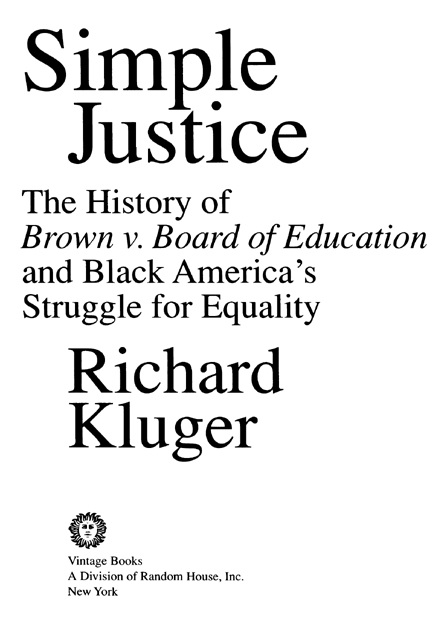Acclaim for Richard Klugers Simple Justice
A gripping story epic history.
Los Angeles Times
A remarkable act of scholarship. A book about values. Its reader should be prepared to be moved.
The Atlantic Monthly
A noble study, written in the grand manner.
Geoffrey Wolff, Newsday
A remarkable book, moving and intellectually rich, mixing scholarship and humanity as it explores the modern Supreme Courts most important decision.
Anthony Lewis
A masterful storyteller. Kluger finds heroes all along the way. Embellished with captivating anecdotes [and] engrossing character vignettes.
St. Louis Post-Dispatch
An exciting story of an American happening as important as the Revolution itself. Superb narrative history.
Kansas City Star
BOOKS BY RICHARD KLUGER
HISTORY
Ashes to Ashes:
Americas Hundred-Year Cigarette War,
the Public Health, and the Unabashed
Triumph of Philip Morris
Simple Justice:
The History of Brown v. Board of Education and
Black Americas Struggle for Equality
The Paper: The Life and Death of the
New York Herald Tribune
NOVELS
When the Bough Breaks
National Anthem
Members of the Tribe
Star Witness
Un-American Activities
The Sheriff of Nottingham
NOVELS WITH PHYLLIS KLUGER
Good Goods
Royal Poinciana
Richard Kluger
Simple Justice
Richard Kluger, a Princeton graduate, worked as a journalist with The Wall Street Journal, New York Post, and the New York Herald Tribune, on which he was the last literary editor, before entering book publishing. After serving as executive editor at Simon and Schuster and editor in chief at Atheneum, he turned to writing fiction and social history. He is the author of six novels (and two others with his wife, Phyllis), two National Book Award finalistsSimple Justice and The Paper (a history of the Herald Tribune)and a Pulitzer Prize-winning history of the American cigarette business, Ashes to Ashes. He and his wife now live in Berkeley, California.
First Vintage Books Edition, April 2004
Copyright 1975, 2004 by Richard Kluger
All rights reserved under International and Pan-American Copyright Conventions. Published in the United States by Vintage Books, a division of Random House, Inc., New York, and in Canada by Random House of Canada Limited, Toronto. Distributed by Random House, Inc., New York. Originally published in slightly different form by Alfred A. Knopf, a division of Random House, Inc., in 1976. This edition published simultaneously in hardcover by Alfred A. Knopf, a division of Random House, Inc.
Vintage and colophon are registered trademarks of Random House, Inc.
A portion of Visible Man previously appeared in The American Lawyer.
The Cataloging-in-Publication Data is on file at the Library of Congress.
eISBN: 978-0-307-54608-1
www.vintagebooks.com
v3.1
FOR
MATTHEW AND TEDDY
AND MINAS GIRLS
Contents
Authors Note
This book was completed in 1975 and issued the following year. It has not been out of print since then, nor has it ever been revised before. Succeeding events and the availability of some new source material did not seem to warrant a recasting of the narrative or an alteration of the judgments herein.
But one thing has changed in the intervening years and requires a word of explanation, if not apology. The word Negro was still in common use in the mid-1970s and had no pejorative or demeaning cast to it. By then, though, black as both noun and adjective was coming to be an equally acceptable (and more prideful) term, and so the author used the two words interchangeably in the text. Colored, by contrast, had taken on an unacceptably old-fashioned and even dismissive connotation, summoning up the bad old days of Jim Crow.
By the time the author began to draft the new final chapter, a retrospective assessment of American race relations since the Brown decision, for this edition, issued for the fiftieth anniversary of the historic ruling, the term African American had become the preferred form of racial identity for many blacks, connoting a heightened sense of dignity and reminding the rest of the nation of their separate ethnic origin and painful history. Accordingly, the new final chapter here uses only the up-to-date term and black, still the standard alternative. But in the preceding twenty-six chapters, the word Negro, while frequently changed, has not been replaced in every instance, primarily because in its historical context it was appropriate and neutral usage, and partly because the constant, frequent repetition of the longer term, African American, would make the text stilted and slow the reader. It should also be noted that such long-established African American groups and institutions as the National Association for the Advancement of Colored People (NAACP), the United Negro College Fund (UNCF), and the Congressional Black Caucus have not yet chosen toand may neveradjust their names to meet the social sensitivities and political correctness of a later day.
B ERKELEY , C ALIFORNIA
July 2003
Foreword
From the start, the United States aspired to far more than its own survival. And from the start, its people have assigned themselves a nobler destiny, justified by a higher moral standing, than impartial scrutiny might confirm. Success added high luster to their character, and when Americans looked into the mirror, they admired with uncommon keenness what they saw.
Only lately, on the eve of the nations bicentennial of independence, has the dazzle of Americas achievement dimmed enough for her people to sense the need to distinguish their conceits from a set of humbling truths. Not all progress, Americans have started to see, can be measured in numbers. Not all wars can be won, and fewer still are worth the spilling of blood and surplus energies. Not all problems can be engineered out of existence without giving rise to yet more severe ones. The skies will not fall if next years profits do not exceed this years level. And the world is nobodys oyster forever; he who would hoard its pearls may wind up choking on them.
Material values in themselves, in short, can neither explain nor sustain the American achievement: the nation must exploit its inner resources as well if it is to linger long at the center of the global stage. This is a book about the resurrection of those inner resources.
Of the ideals that animated the American nation at its beginning, none was more radiant or honored than the inherent equality of mankind. There was dignity in all human flesh, Americans proclaimed, and all must have its chance to strive and to excel. All men were to be protected alike from the threat of rapacious neighbors and from the prying or coercive state. If it is a sin to aspire to conduct of a higher order than one may at the moment be capable of, then Americans surely sinned in professing that all men are created equaland then acting otherwise. Nor did time close the gap between that profession and the widespread practice of racism in the land. The nation prospered mightily nonetheless, and few were willing to raise their voices and suggest that what might once have been forgiven as the excesses of a buoyant national youth had widened into systematic and undiminishing cruelty.


